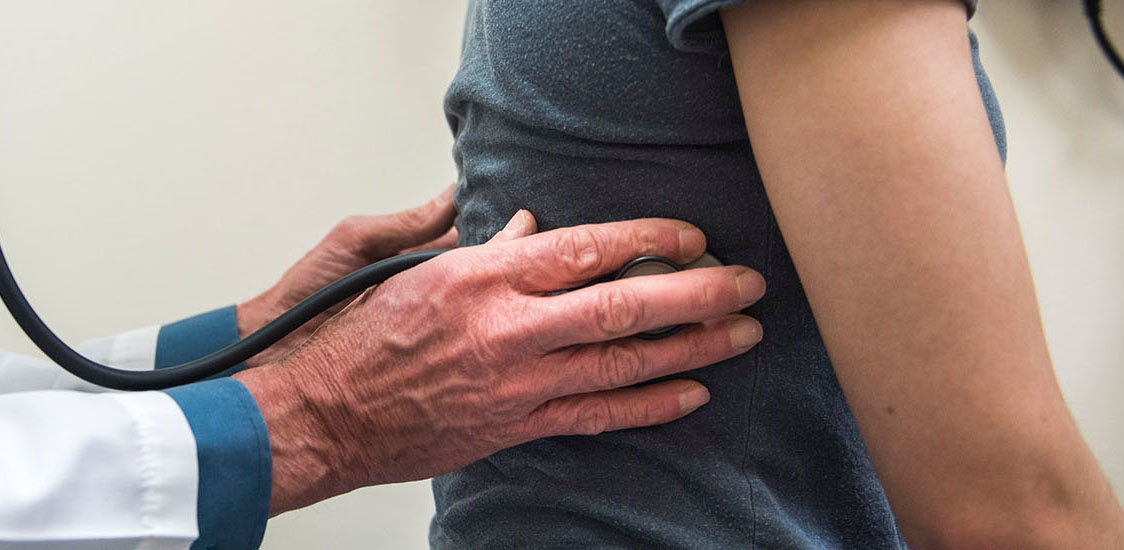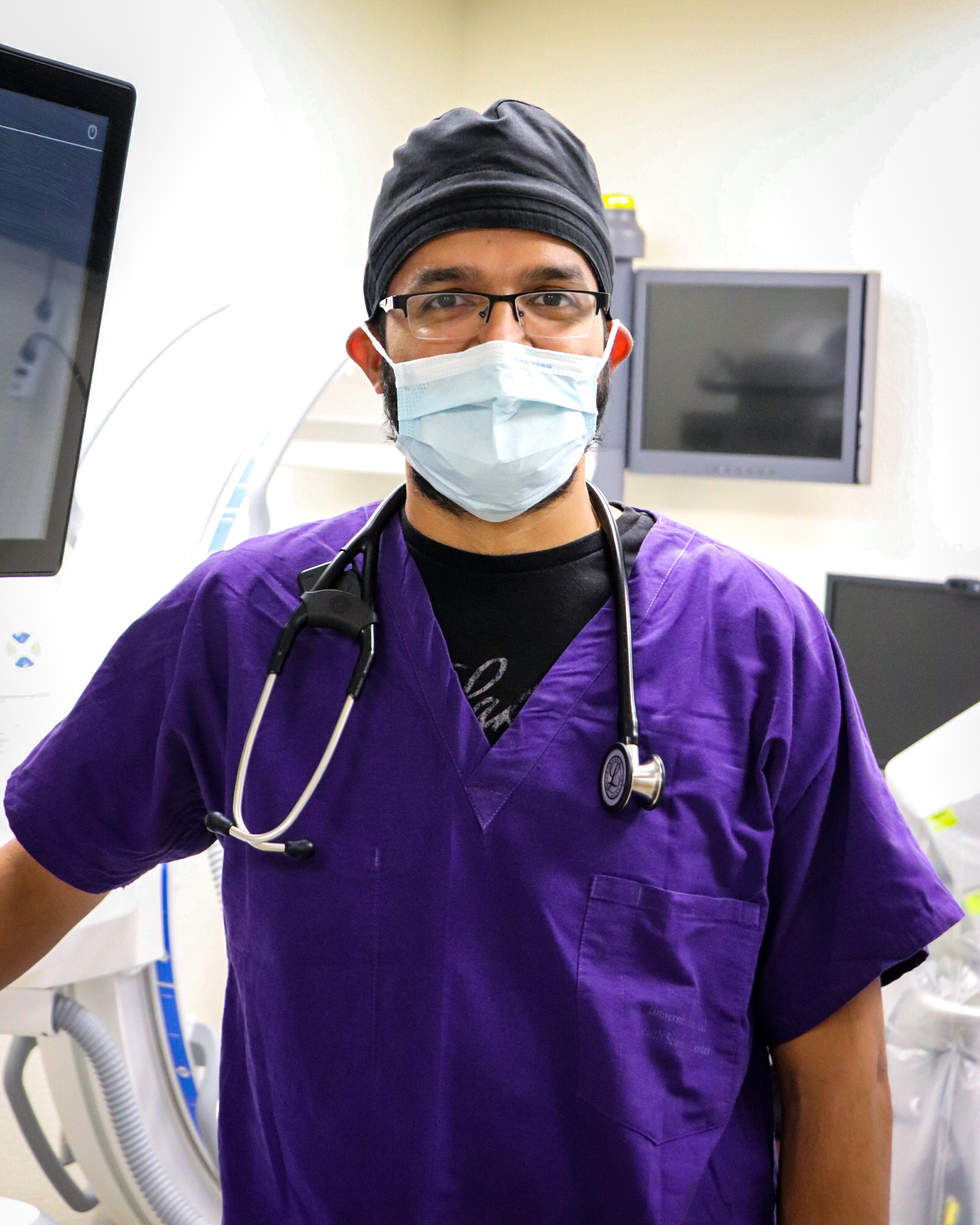Preparing for Disaster: UNM Hospital Participates in Region-Wide Emergency Training

Vital Vigilance
Lung Cancer Awareness Month Highlights Early Screening to Save Lives
Of all the cancers that kill hundreds of thousands of people every year, lung cancer is the deadliest, says Akshu Balwan, MD, attending physician at The University of New Mexico Hospital and assistant professor in the Division of Pulmonary & Critical Care in the UNM School of Medicine.
Early screening is essential to saving lives, Balwan says.
UNMH is using new technology to screen patients who have a suspected lung cancer diagnosis. The robotic bronchoscopy machine can help perform biopsies of nodules – small spots of suspicious tissue in the lungs that might not be visible through conventional bronchoscopy.
It increases a pulmonary physician’s capability to biopsy lung nodules that are small and deeper in the lung, Balwan says. “This will help us diagnose cancer at an early stage, at which point it is more likely to be curable. It also opens opportunities toward using this advanced technology for possible novel curative therapies.”
The new robotic bronchoscopy device at UNMH – the only one in the state – is a large machine that takes up a good amount of space in an operating room. One part of it looks like it could be part of a gaming console, but this machine goes way beyond, creating a 3-D map of the lungs.
Fewer than 10% of people who are eligible for screening get screened, and as part of Lung Cancer Awareness Month, Balwan and his team hope to change.
Who should get screened?
Anyone who smokes or has smoked cigarettes in the past should check with a primary care provider.

The problem with lung cancer is 80% of it is diagnosed in the late stages
“Research shows that we can decrease the number of deaths upwards of 20% with lung cancer screening,” Balwan says. “The problem with lung cancer is 80% of it is diagnosed in the late stages.”
UNM’s interventional pulmonology program has continued to evolve and establish itself as the largest, most comprehensive interventional program in the state, he says.
“We’ve made great advances in treatment of lung cancer, and also have found ways to detect lung cancer early with lung cancer screening,” Balwan says.
Some symptoms of lung cancer, according to the Lung Cancer Research Foundation, are:
B – Blood when you cough or spit
R – Recurring respiratory infections
E – Enduring cough that is new or different
A – Ache or pain in shoulder, back or chest
T – Trouble breathing
H – Hoarseness or wheezing
E – Exhaustion, weakness or loss of appetite